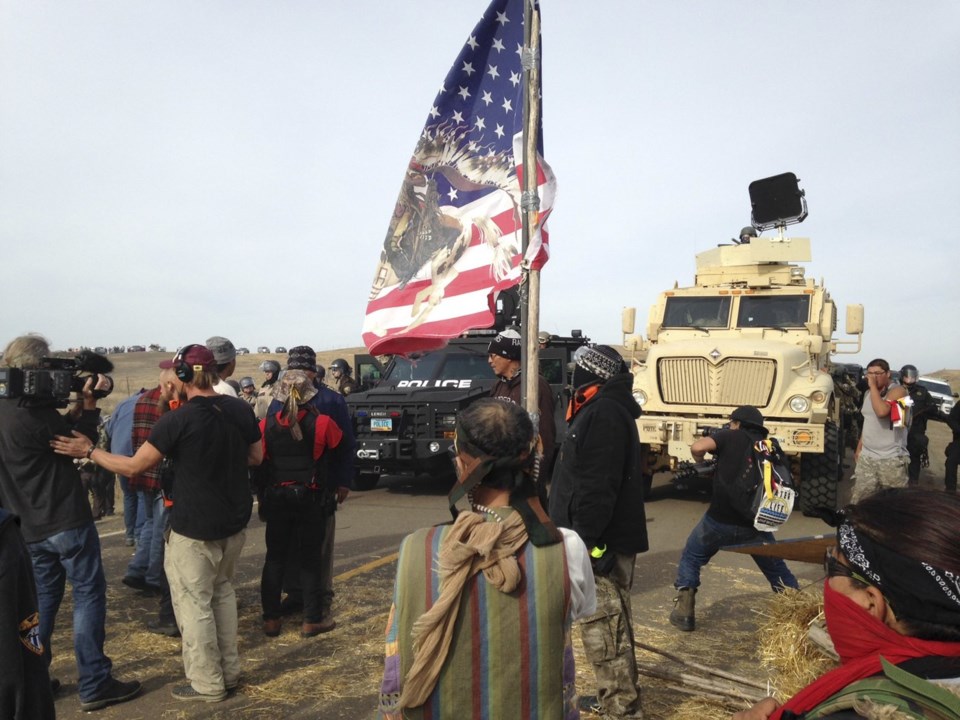MANDAN, N.D. (AP) — An attorney for a Texas pipeline company said Wednesday that he will prove various Greenpeace entities coordinated delays and disruptions of a controversial oil pipeline's construction in North Dakota, and defamed the company to its lenders.
Attorneys for the Greenpeace defendants told a jury there is no evidence to back up the claims by Dallas-based Energy Transfer, which seeks potentially hundreds of millions of dollars in damages from Greenpeace.
The case is tied to protests in 2016 and 2017 of the Dakota Access Pipeline and its controversial Missouri River crossing upstream of the Standing Rock Sioux Tribe's reservation. The tribe has long opposed the pipeline as a risk to its water supply. The pipeline was completed in 2017.
Energy Transfer and its subsidiary Dakota Access allege trespass, nuisance, defamation and other offenses by Netherlands-based Greenpeace International and its American branch, Greenpeace USA. The lawsuit also names the group’s funding arm, Greenpeace Fund Inc.
Greenpeace paid professional protesters to come to the area, sent blockade supplies, passed “critical intel” to the protesters and told untrue things to stop the pipeline from being built, plaintiff attorney Trey Cox told the jury in his opening statement.
“They didn't think that there would ever be a day of reckoning, but that day of reckoning begins today,” Cox said.
Attorneys for the defendants emphasized what they said are distinctions between the various Greenpeace entities, that Greenpeace International and Greenpeace Fund Inc. had zero involvement in the protests, while Greenpeace USA had six employees at Standing Rock for five to 51 days.
Greenpeace is committed to nonviolence, and only got involved at Standing Rock because of tribal outreach, the attorneys said.
“This was an Indigenous-led movement by the Native tribes, and we wanted them to have the spotlight," said Greenpeace USA attorney Everett Jack.
One of the alleged defamatory statements — that Energy Transfer desecrated burial grounds and culturally important sites during construction — was made many times by the tribe before any of the Greenpeace statements, he said.
Greenpeace representatives have said the lawsuit is an example of corporations abusing the legal system to go after critics and is a critical test of free speech and protest rights. An Energy Transfer spokesperson said the case is about Greenpeace not following the law, not free speech.
Nine jurors and two alternates will hear the case in Mandan, North Dakota.
Greenpeace says the lawsuit is going after $300 million, citing a figure from a previous federal case. The lawsuit complaint asks for damages in an amount to be proved at trial.
Jury selection took place earlier in the week and the estimated five-week trial is now underway.
The company filed a similar case in federal court in 2017, which a judge dismissed in 2019. Energy Transfer subsequently filed the lawsuit now at trial in state court.
Earlier in February, Greenpeace International filed an anti-intimidation suit in the District Court of Amsterdam against Energy Transfer, saying the company acted wrongfully and should pay costs and damages resulting from its “meritless” litigation.
Jack Dura, The Associated Press




